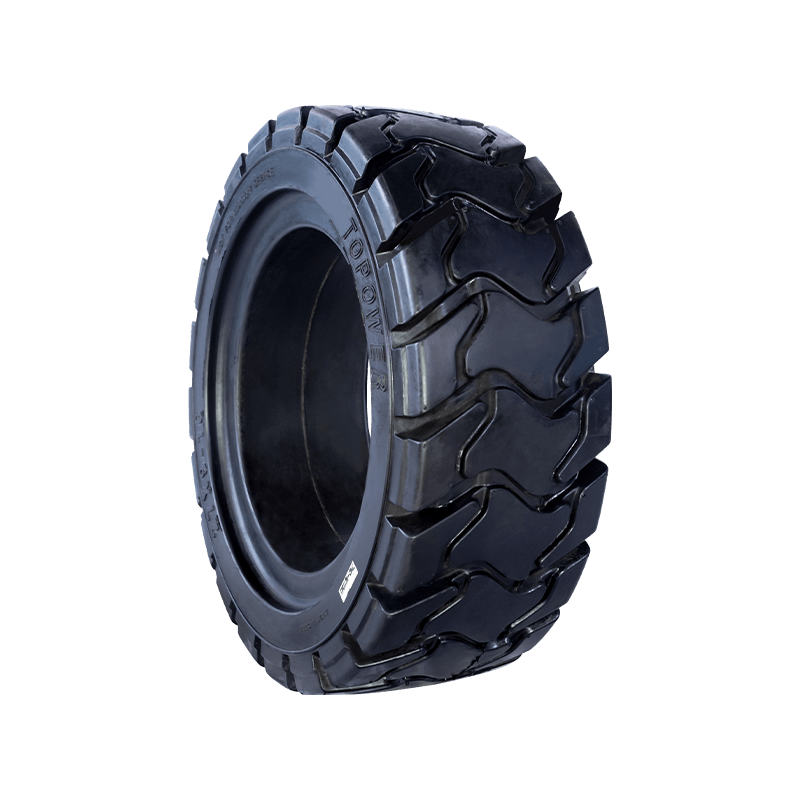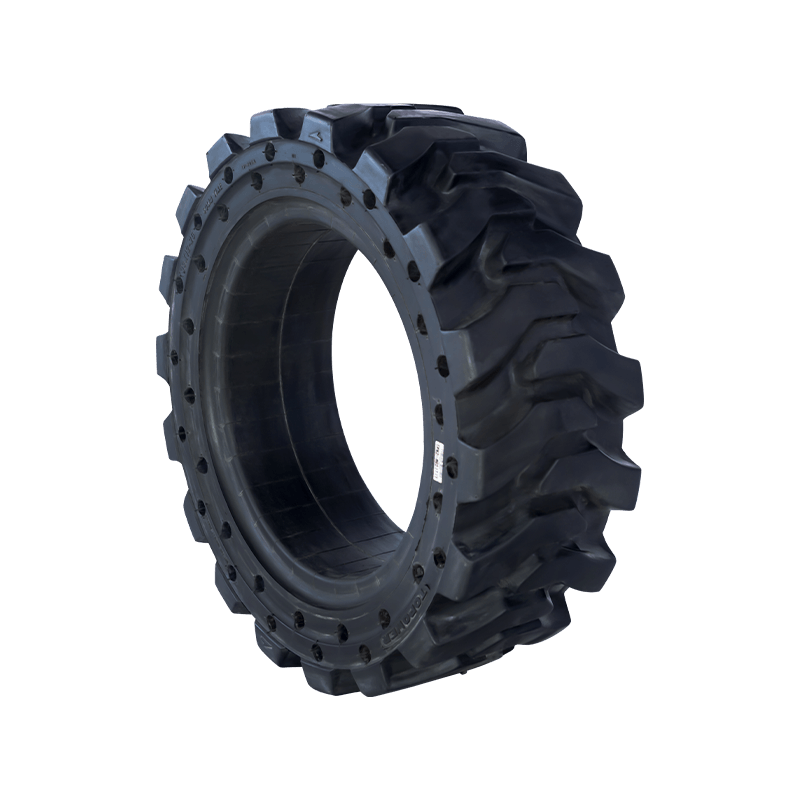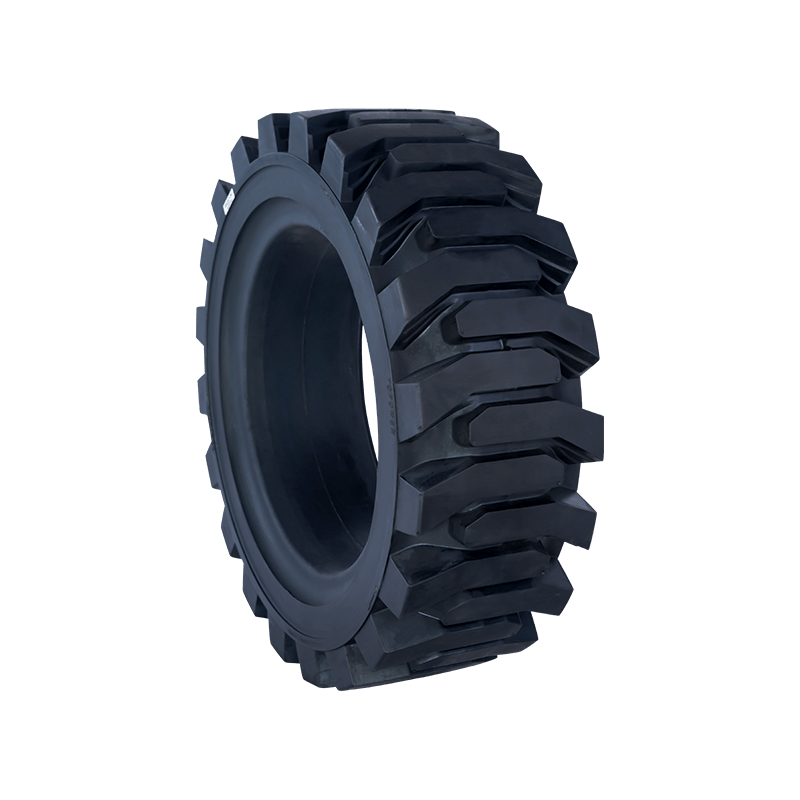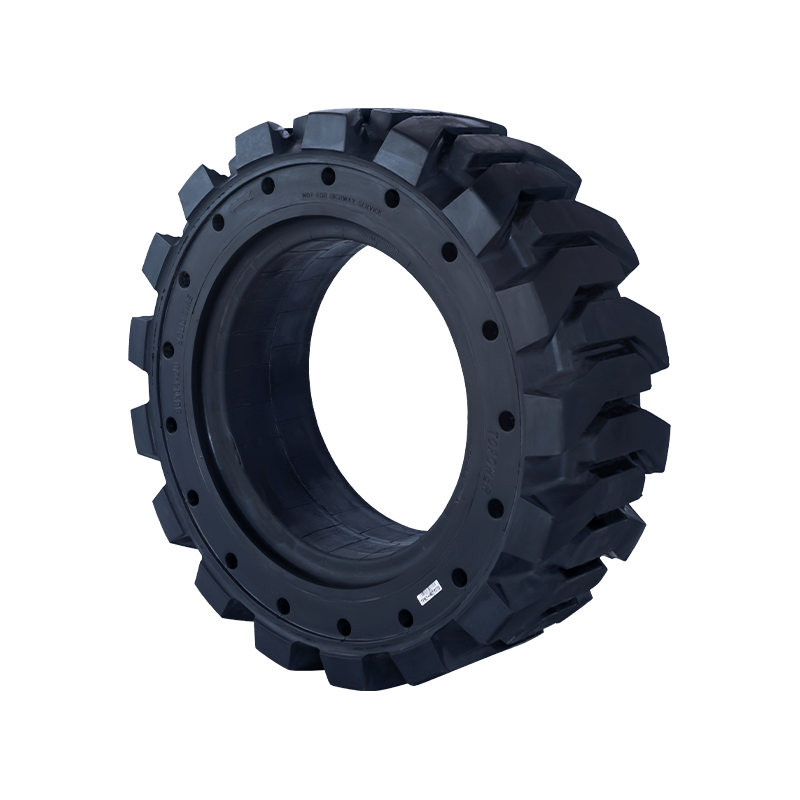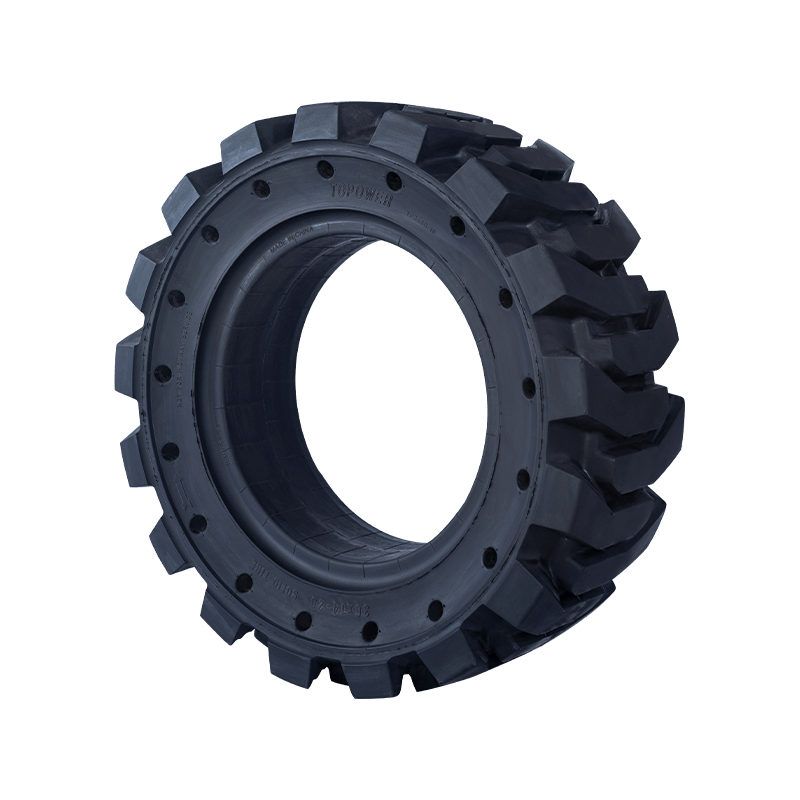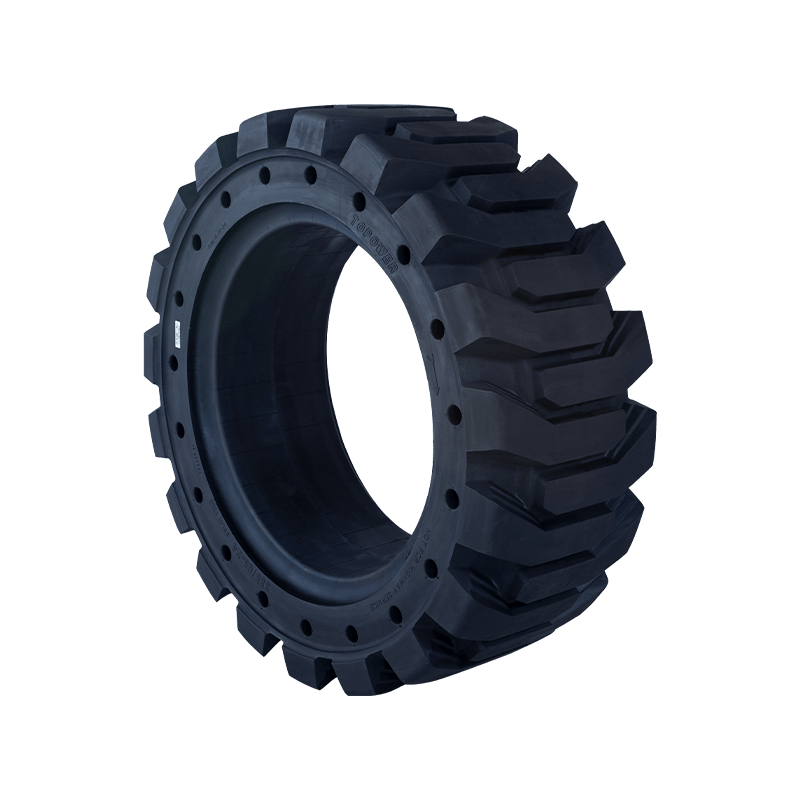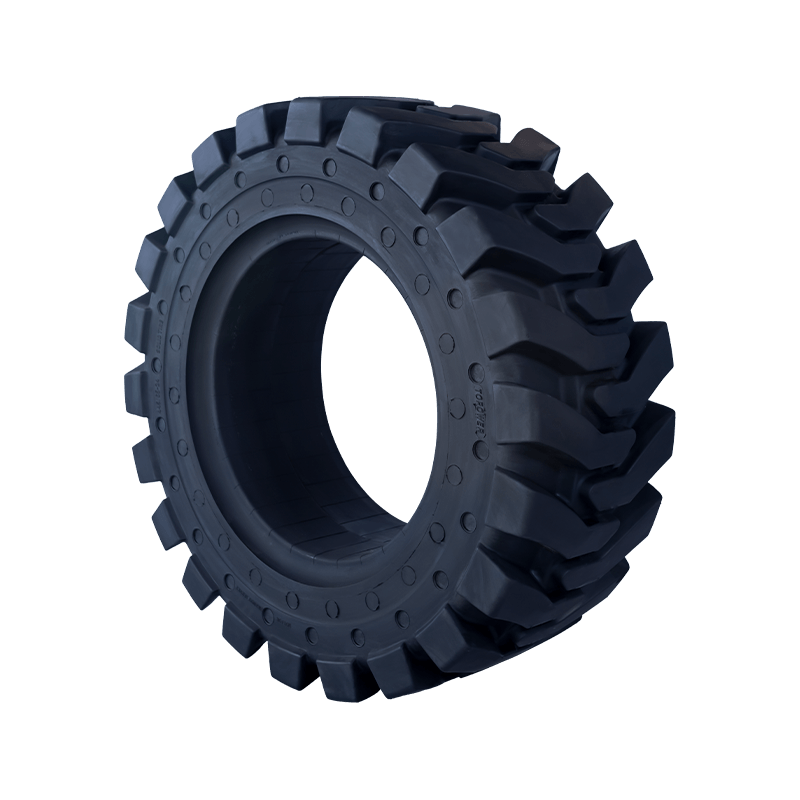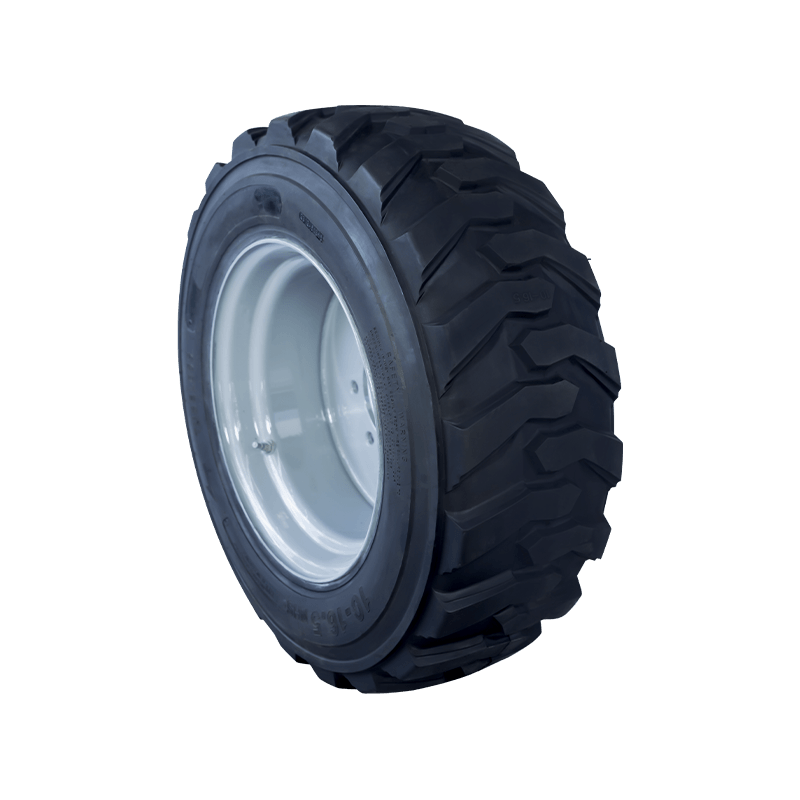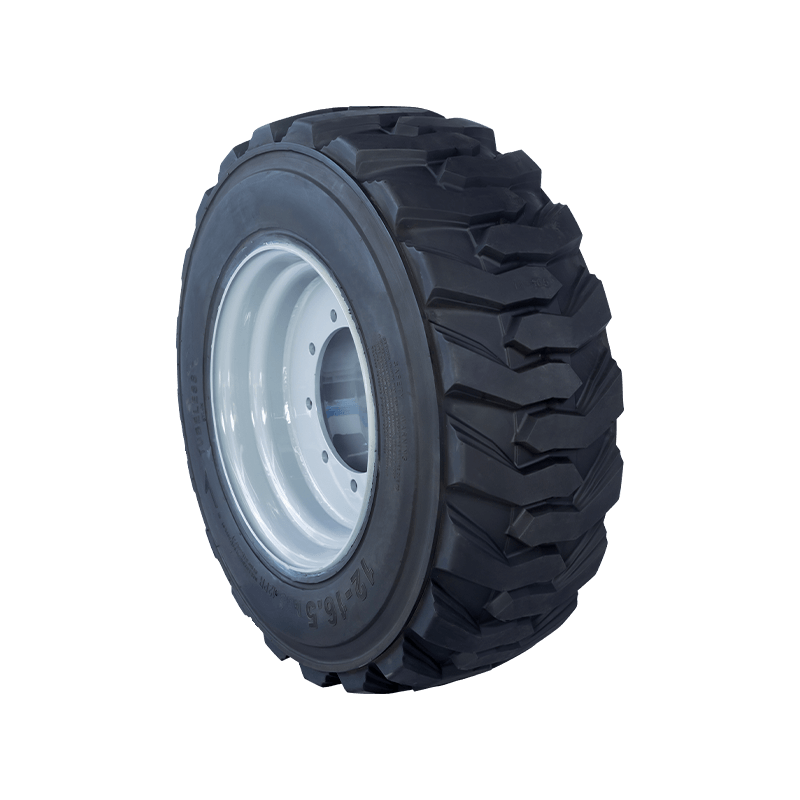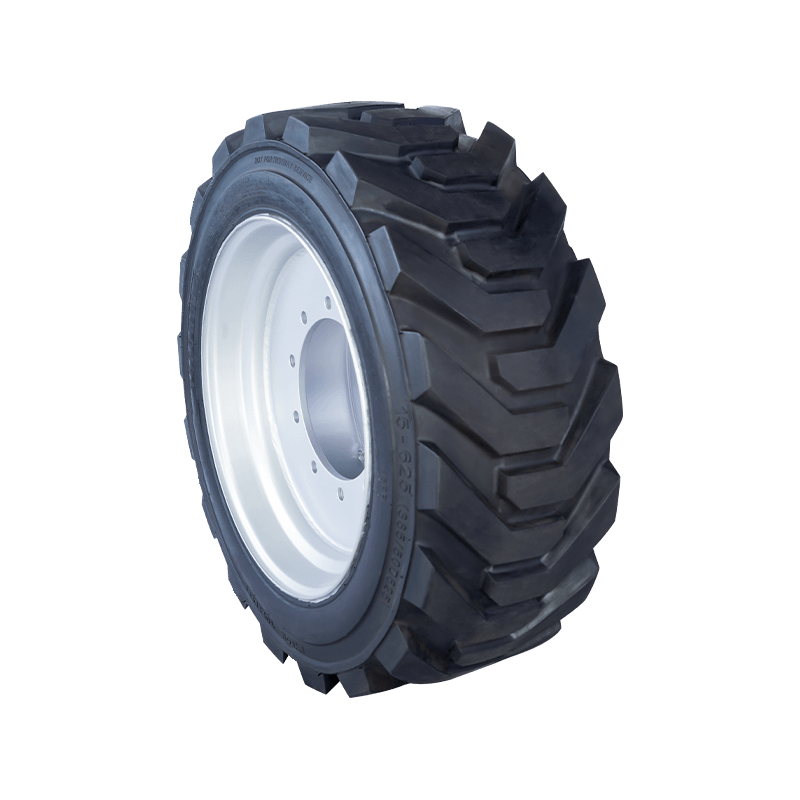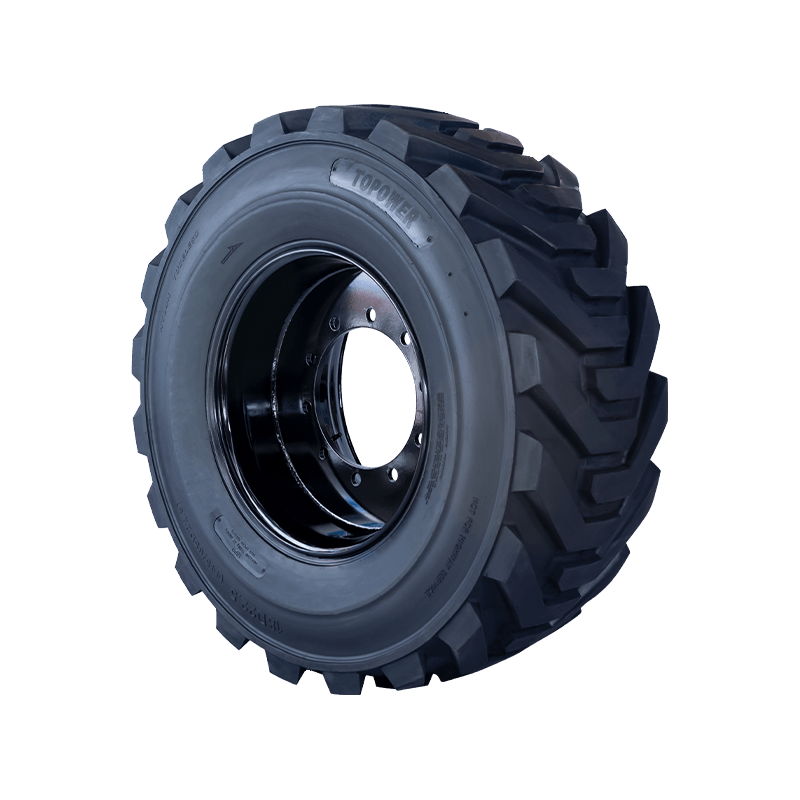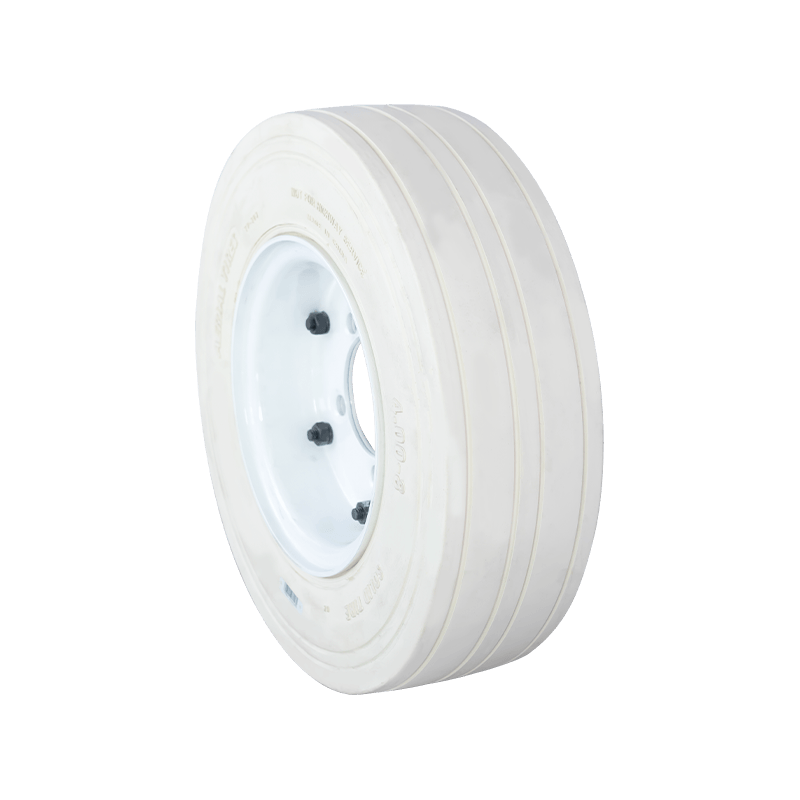Polyurethane solid tires are made by combining polyurethane and rubber through a special process. Compared to traditional rubber tires, polyurethane tires offer higher wear and cut resistance, ensuring excellent performance in demanding industrial environments. Their excellent corrosion resistance and aging resistance ensure the tire remains stable and reliable even in changing environmental conditions.
Polyurethane solid tire core advantages
High load capacity, suitable for extreme working conditions: Polyurethane solid tires are made from a polyurethane and rubber composite material. This special material combination enables tires of the same size to have a load capacity far exceeding that of traditional rubber tires. Whether it's large warehouse forklifts, heavy-duty stackers, or frequently used automated transport equipment, polyurethane solid tires maintain stable structural strength, resist deformation, and prevent blowouts, greatly ensuring safe and reliable operation. In high-intensity, high-load industrial environments, using this high-load tire can significantly improve equipment efficiency and service life. Cut and puncture resistance, extending tire life: Industrial production environments are often exposed to debris, metal shavings, and other sharp objects. These objects can easily cut or puncture conventional solid tires, leading to frequent tire replacements and increased maintenance costs. However, polyurethane solid tires, thanks to their dense and tough material structure, exhibit excellent cut and puncture resistance. Even in harsh environments, polyurethane solid tires effectively resist damage from debris and sharp objects, reducing tire damage rates. This not only reduces equipment downtime but also helps companies save significant maintenance and replacement costs, improving overall operational efficiency.
Corrosion and aging resistance, perfectly adaptable to various harsh environments: Polyurethane material possesses excellent corrosion resistance, resisting the attack of a variety of chemicals, such as oils, acids and alkalis, making it particularly suitable for use in specialized working conditions such as chemical plants, ports, and cold storage. Furthermore, polyurethane tires offer exceptional material stability and excellent UV and oxidation resistance. Compared to traditional rubber tires, polyurethane solid tires are less susceptible to aging, hardening, or cracking during long-term outdoor use. This ensures the tire maintains excellent elasticity and durability, providing businesses with long-term, reliable service.
Parameter and performance comparison of polyurethane solid tires with conventional rubber tires:
|
Performance Parameter |
Polyurethane Solid Tyre |
Regular Rubber Solid Tyre |
|
Load Capacity |
High load-bearing capacity, suitable for heavy-duty conditions. |
Moderate load capacity, suitable for light to medium loads. |
|
Wear Resistance |
Excellent wear resistance and long lifespan. |
Average wear resistance, prone to wear. |
|
Cut/Puncture Resistance |
Strong resistance to cuts and punctures. |
Weak cut resistance, easily punctured. |
|
Corrosion Resistance |
Good corrosion resistance, suitable for harsh environments. |
Poor corrosion resistance, limited usage environments. |
|
Service Life |
3-5 times longer lifespan than rubber tyres, reducing maintenance costs. |
Short lifespan, requires frequent replacement and maintenance. |
|
Color Customization |
Supports multiple color customization options. |
Limited to standard black color. |
Wide range of applications, suitable for a variety of industrial equipment
Due to their excellent performance, polyurethane solid tires are widely used in a variety of industrial equipment, meeting the needs of diverse working environments.
Forklifts: In modern warehouses and logistics centers, forklifts are essential transportation tools. High-load forklift operations place extremely high demands on tire stability and safety. Polyurethane solid tires offer exceptional load-bearing capacity and pressure resistance, ensuring forklifts maintain excellent grip under heavy loads and preventing the risk of slipping and rollovers. Furthermore, their solid construction eliminates tire blowouts, significantly reducing downtime caused by tire failures and ensuring continuous and efficient forklift operations. Automated Guided Vehicles (AGVs): Polyurethane solid tires are the preferred tire for AGVs due to their excellent wear resistance and low noise levels. Their wear-resistant material reduces tire wear and extends service life, while their quiet operation reduces noise pollution in industrial environments, enhancing workplace comfort and safety. The widespread use of polyurethane solid tires in intelligent logistics systems effectively ensures the efficient operation of automated logistics.
Electric stackers and electric tractors: Electric stackers and electric tractors often require long periods of continuous operation, making tire durability and fatigue resistance particularly critical. Polyurethane solid tires are not only wear-resistant and pressure-resistant but also possess excellent elasticity, effectively buffering mechanical vibrations and reducing equipment impact on the ground, extending the service life of both the equipment and the tire itself. These high-performance tires enable equipment to maintain stable operation in a variety of complex operating environments, helping businesses improve efficiency and reduce maintenance costs.
Cold storage vehicles: Cold storage and cold chain logistics environments experience extremely low temperatures. Traditional rubber tires tend to harden and crack at low temperatures, affecting grip and safety. The polyurethane solid tires feature a low-temperature-resistant formula, maintaining excellent flexibility and grip in extreme environments down to -40°C, ensuring stable operation of vehicles operating in cold storage facilities. Furthermore, the tires' corrosion resistance allows them to withstand moisture and chemical corrosion in cold storage, extending their service life.

 English
English русский
русский Español
Español عربى
عربى


